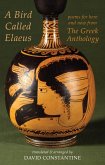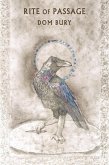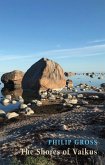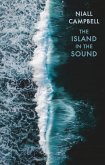Against a backdrop of vast geological time and recent fossil-fuel burning history, the poems of Katrina Porteous's latest collection address current issues of social and environmental change.
350 million years ago what is now the rocky shore close to Katrina Porteous's Northumberland home was a tropical swamp inhabited by three-metre long predatory fish with huge tusk-like teeth. Able to move on land as well as swim, such lobe-finned fishes are the ancestors of all four-limbed vertebrates, including humans. This fossil fish is called the 'rhizodont'. Porteous's new collection begins with a lovingly-observed contemporary journey through these ancient Carboniferous landscapes, from the former coal-mining communities of the Durham coast to the Northumberland shores where the rhizodont's remains were found.
Rhizodont extends territory explored in Porteous's three previous books. Combining scientific themes from Edge with the ecological localism of Two Countries and The Lost Music, these poems unfold from England's North-East coast into global questions of evolution, survival and extinction in communities and languages, and throughout the natural world, where hope resides in life's astonishing powers of reinvention.
350 million years ago what is now the rocky shore close to Katrina Porteous's Northumberland home was a tropical swamp inhabited by three-metre long predatory fish with huge tusk-like teeth. Able to move on land as well as swim, such lobe-finned fishes are the ancestors of all four-limbed vertebrates, including humans. This fossil fish is called the 'rhizodont'. Porteous's new collection begins with a lovingly-observed contemporary journey through these ancient Carboniferous landscapes, from the former coal-mining communities of the Durham coast to the Northumberland shores where the rhizodont's remains were found.
Rhizodont extends territory explored in Porteous's three previous books. Combining scientific themes from Edge with the ecological localism of Two Countries and The Lost Music, these poems unfold from England's North-East coast into global questions of evolution, survival and extinction in communities and languages, and throughout the natural world, where hope resides in life's astonishing powers of reinvention.
Dieser Download kann aus rechtlichen Gründen nur mit Rechnungsadresse in A, D ausgeliefert werden.









